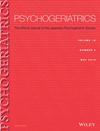痴呆症患者行为和心理症状的治疗:实用建议
IF 1.7
4区 医学
Q3 GERIATRICS & GERONTOLOGY
引用次数: 0
摘要
痴呆症的行为和心理症状(BPSD)是一项临床挑战,因为它缺乏完善的分类标准,经常与 BPSD 合并出现,缺乏特定的药物干预措施,随机临床试验的方法学证据基础薄弱,与治疗青少年和成人精神疾病的行为障碍有冲突,精神药物的疗效窗口较小。我们在此基于概念驱动的文献综述,提出了一套治疗工作流程,该流程基于以下概念:(i) BPSD 的病因可能主要是神经生物学方面的(所谓的 "原发性 "症状),也可能主要是环境和功能方面的("继发性 "症状),而这正是治疗的驱动因素;(ii) 精神药物的临床疗效受其受体亲和力的特定特征驱动;(iii) 药物治疗应遵循 "低剂量开始、缓慢进行、处方和修正 "的规则。本文论证了原发性和继发性 BPSD 之间的区别及其特征,迄今为止,文献中对这些区别和特征的描述还很粗略。文章还为临床医生治疗 BPSD 提供了全面、务实的建议。本文章由计算机程序翻译,如有差异,请以英文原文为准。
The treatment of behavioural and psychological symptoms in dementia: pragmatic recommendations
Behavioural and psychological symptoms of dementia (BPSD) are a clinical challenge for the lack of a sound taxonomy, frequent presentation with comorbid BPSD, lack of specific pharmacologic interventions, poor base of methodologically sound evidence with randomized clinical trials, contamination from the treatment of behavioural disturbances of young and adult psychiatric conditions, and small efficacy window of psychotropic drugs. We present here a treatment workflow based on a concept‐driven literature review based on the notions that (i) the aetiology of BPSD can be mainly neurobiological (so‐called ‘primary’ symptoms) or mainly environmental and functional (‘secondary’ symptoms) and that this drives treatment; (ii) the clinical efficacy of psychotropic drugs is driven by their specific profile of receptor affinity; (iii) drug treatment should follow the rules of ‘start low–go slow, prescribe and revise’. This article argues in support of the distinction between primary and secondary BPSD, as well as their characteristics, which until now have been just sketchily described in the literature. It also offers comprehensive and pragmatic clinician‐oriented recommendations for the treatment of BPSD.
求助全文
通过发布文献求助,成功后即可免费获取论文全文。
去求助
来源期刊

Psychogeriatrics
Medicine-Geriatrics and Gerontology
CiteScore
3.60
自引率
5.00%
发文量
115
审稿时长
>12 weeks
期刊介绍:
Psychogeriatrics is an international journal sponsored by the Japanese Psychogeriatric Society and publishes peer-reviewed original papers dealing with all aspects of psychogeriatrics and related fields
The Journal encourages articles with gerontopsychiatric, neurobiological, genetic, diagnostic, social-psychiatric, health-political, psychological or psychotherapeutic content. Themes can be illuminated through basic science, clinical (human and animal) studies, case studies, epidemiological or humanistic research
 求助内容:
求助内容: 应助结果提醒方式:
应助结果提醒方式:


